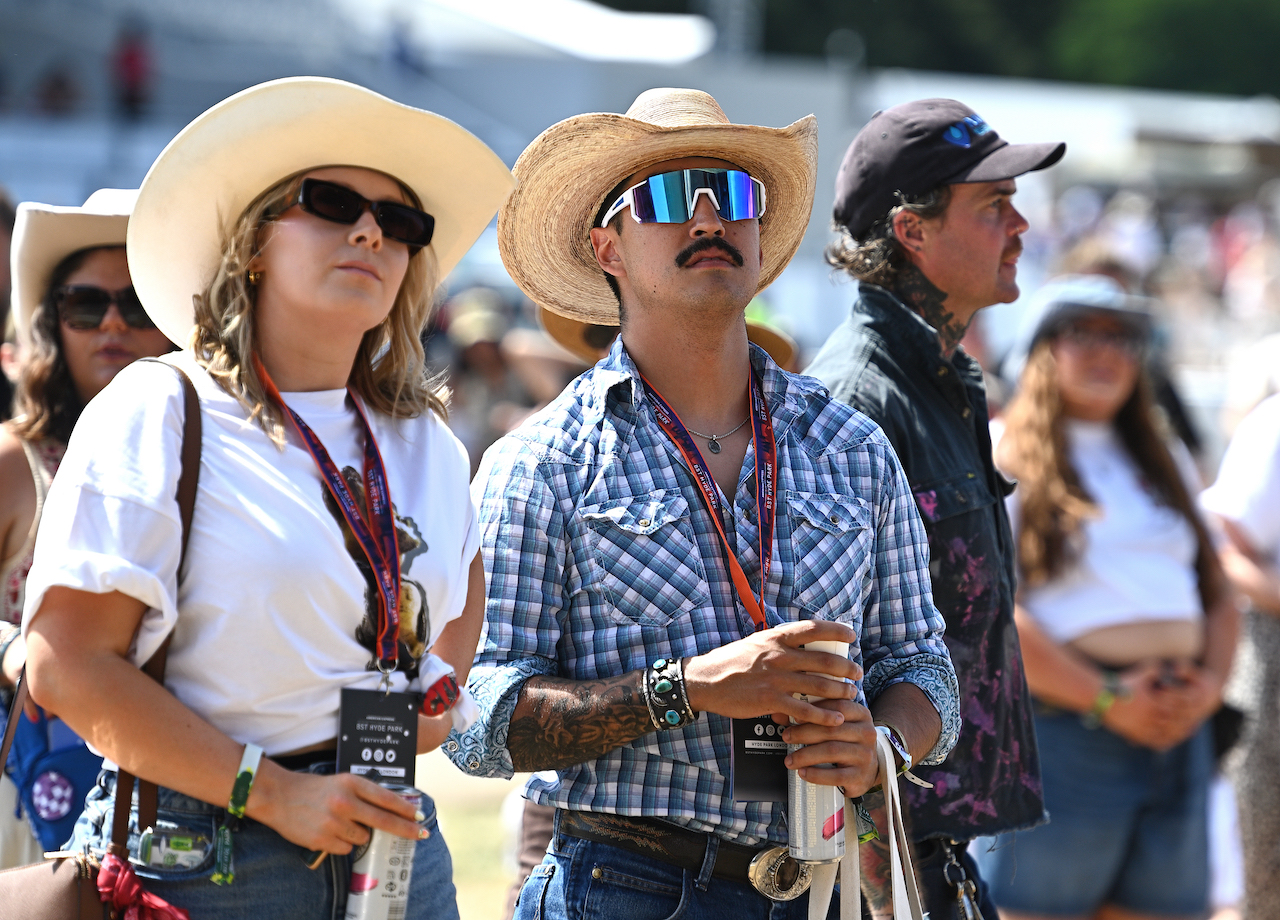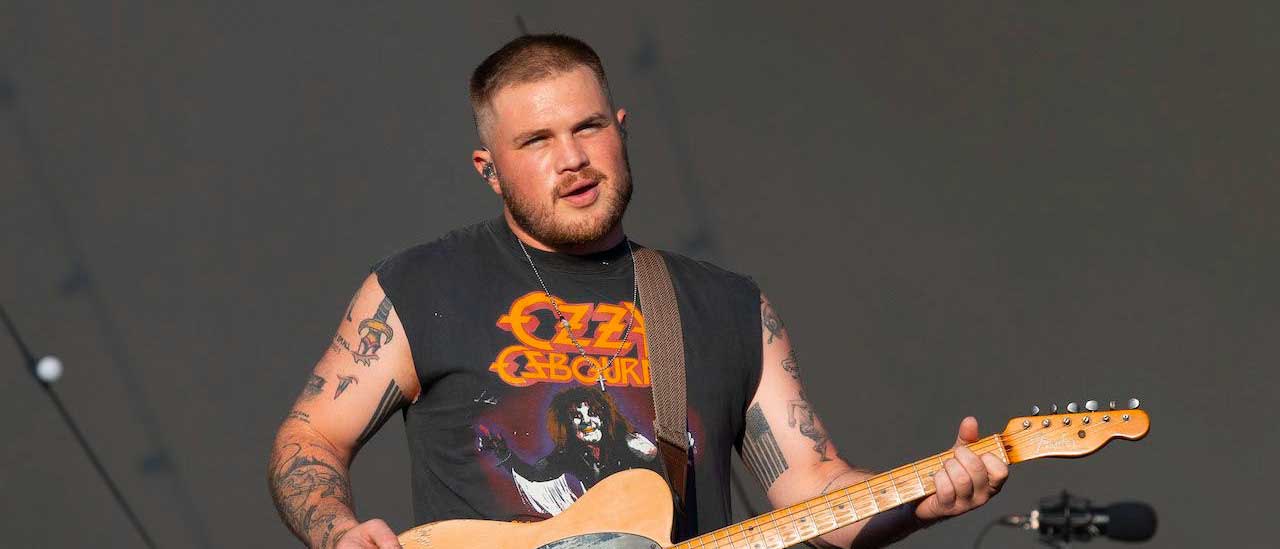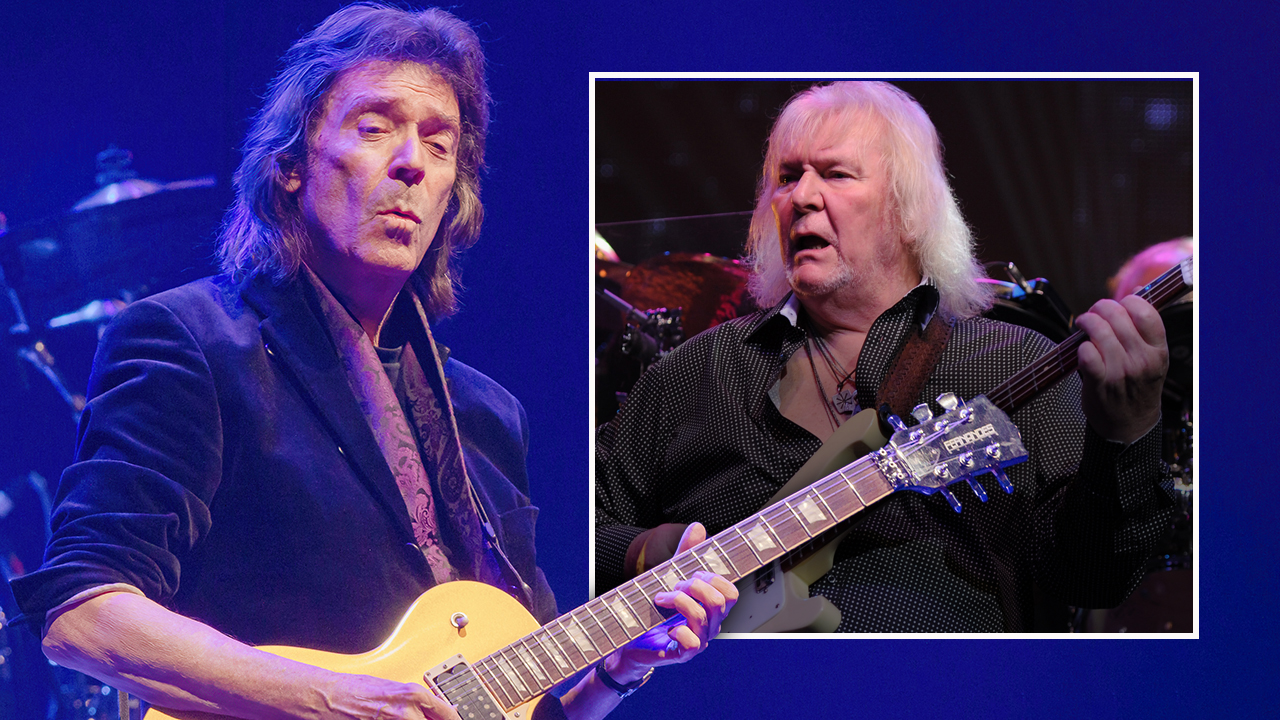You can trust Louder
Cowboy boots, trucker caps and beards as far as the eye can see. The guys are dressed as good ol’ boys and the girls have gone full cowgirl. What is it about Zach Bryan that has convinced the youth of Britain to lose their cynical British minds?
Well, Instagram, probably. As anyone who was in London a few weeks ago for Beyonce’s shows will know: big shows have become an excuse to hit the dressing-up box.
Zach Bryan has sold out two nights at Hyde Park Calling - his biggest ever gigs (the last time he played London, he says, it was at the Academy in Islington), the crowd a mix of mostly 20-something men and women who sing along with his every word: Americana songs of loss, heartbreak, trauma, and class struggle, backed by a horn section and a string section, and sung by a Wayne Rooney-lookalike in a sleeveless Ozzy tee.
These are not corny bro-country anthems (although there are a couple) but songs that – as any old scrote could tell you – sound a lot like the music of Bruce Springsteen, Steve Earle, or Bob Dylan.
This audience likes that music?
Bryan is the kinda guy that makes some people nervous these days: an artist that came to attention through YouTube videos, a tough-looking white guy with a military background and a predilection for songs about small town life. But relax: there’s little to worry about beyond his ability to get guys from Sheffield to wear cowboy boots and Aviators.
I have personally vetted every word in each of the 63,452 songs he’s released in the last few years – Bryan is what you call prolific – and there’s nothing to worry about and much to love. This is a guy who released a live album called All My Homies Hate Ticketmaster, with an explanatory post on Instagram: “I believe working class people should still be able to afford tickets to shows.”
The latest news, features and interviews direct to your inbox, from the global home of alternative music.


He opens with Overtime: “They said I’s a wannabe cowboy from a cutthroat town,” it goes. “With tattooed skin and nobody around/Your songs sound the same, you’ll never make a name for yourself.”
Bryan’s songs sometimes DO sound samey (Summertime’s Close and Hey Driver have literally the same chords), sometimes even a little unfinished, but it’s one of his strengths: it feels like he’s knocking ‘em out, not sitting polishing the life out of something, over-producing it in the hope of getting a hit.
It’s his brand: the guy singing about ordinary lives in an extraordinary way. And this audience know every one of his words.
He rattles through songs, thick and fast, like it ain’t nuthin’. The anthems – Godspeed, Oklahoma Smokeshow, Dawns – get huge cheers. But smaller, more intimate songs like Pink Skies feel big. Skies appears to be about his mum’s funeral, with lyrics about cleaning out her house with his siblings that kick you right in the feels: “So clean the house, clear the drawers, mop the floors, stand tall/Like no one’s ever been here before or at all/And don’t you mention all the inches that are scraped on the doorframe/We all know you tiptoed up to 4’1” back in ‘08.”
Support act Dermot Kennedy comes on for Hey Driver, a bleak song about losing faith in the world (“Hey, driver, I've been feelin'/Like there's no point at all/The Klonopin ain't kicked in/And I missed my sister's call”) that’s sung by 65,000 people like it’s We Are The Champions.
Closer Revival is an epic piece of showstopping stagecraft, with each member of the band taking a solo, banjo player Read Connelly faking a heart attack before being revived and delivering a blazing banjo solo. (Read that again: a blazing banjo solo. The crowd of British 20-somethings go wild. This is surely a first.)
He plays a new song called Streets Of London: “I wrote this song four days ago,” he says, like he can hardly believe it himself. “We recorded it and it’s gonna be released on Monday.”
This is the speed he’s moving at. The guy’s on a hot streak and it’s incredible to witness.

Scott is the Content Director of Music at Future plc, responsible for the editorial strategy of online and print brands like Louder, Classic Rock, Metal Hammer, Prog, Guitarist, Guitar World, Guitar Player, Total Guitar etc. He was Editor in Chief of Classic Rock magazine for 10 years and Editor of Total Guitar for 4 years and has contributed to The Big Issue, Esquire and more. Scott wrote chapters for two of legendary sleeve designer Storm Thorgerson's books (For The Love Of Vinyl, 2009, and Gathering Storm, 2015). He regularly appears on Classic Rock’s podcast, The 20 Million Club, and was the writer/researcher on 2017’s Mick Ronson documentary Beside Bowie.
You must confirm your public display name before commenting
Please logout and then login again, you will then be prompted to enter your display name.

